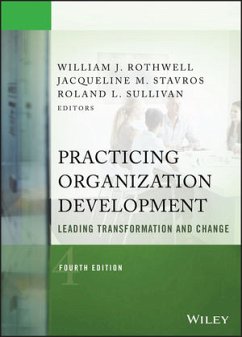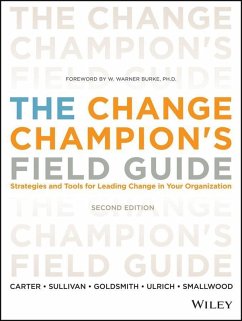
Managers of Innovation (eBook, PDF)
Insights into Making Innovation Happen
Versandkostenfrei!
Sofort per Download lieferbar
27,99 €
inkl. MwSt.
Weitere Ausgaben:

PAYBACK Punkte
0 °P sammeln!
Innovation is increasingly identified as the critical factor in ensuring economic competitiveness. Departments of state and quasi-governmental organizations in many countries including, Austria, Australia, Canada, France, Germany, The Netherlands, Sweden and the UK, have issued reports and calls to action; but implementation will continue to be problematic unless the points made in this book are taken into account. Drawing on 350 in-depth interviews with senior managers, this book presents an original theory about the characteristics of managers in "good innovative organizations" and "poor inn...
Innovation is increasingly identified as the critical factor in ensuring economic competitiveness. Departments of state and quasi-governmental organizations in many countries including, Austria, Australia, Canada, France, Germany, The Netherlands, Sweden and the UK, have issued reports and calls to action; but implementation will continue to be problematic unless the points made in this book are taken into account. Drawing on 350 in-depth interviews with senior managers, this book presents an original theory about the characteristics of managers in "good innovative organizations" and "poor innovative organizations". It pays close attention to the attitudes, understandings, assumptions and interpretations of managers, who are often the ultimate decision-makers when it comes to innovation. The text is supported by real-life, internationally-known cases such as Hewlett-Packard, Zeneca and the BBC, as well as voluntary sector cases such as Oxfam. It is also enriched by substantial and highly revealing quotations from senior managers themselves.
Dieser Download kann aus rechtlichen Gründen nur mit Rechnungsadresse in A, B, BG, CY, CZ, D, DK, EW, E, FIN, F, GR, HR, H, IRL, I, LT, L, LR, M, NL, PL, P, R, S, SLO, SK ausgeliefert werden.












